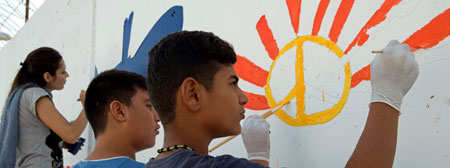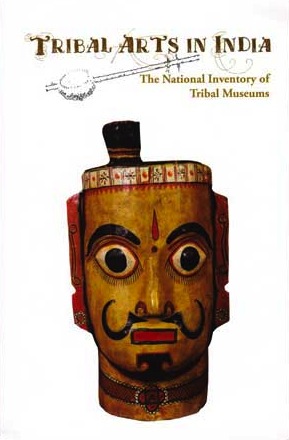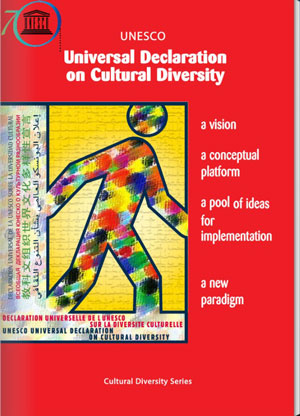Held every year on 21 May, the World Day for Cultural Diversity for Dialogue and Development celebrates not only the richness of the world’s cultures, but also the essential role of intercultural dialogue for achieving peace and sustainable development. The United Nations General Assembly first declared this World Day in 2002, following UNESCO’s adoption of the 2001 Universal Declaration on Cultural Diversity, recognizing the need to “enhance the potential of culture as a means of achieving prosperity, sustainable development and global peaceful coexistence.” […]
It represents an opportunity to celebrate culture’s manifold forms, from the tangible and intangible, to creative industries, to the diversity of cultural expressions, and to reflect on how these contribute to dialogue, mutual understanding, and the social, environmental and economic vectors of sustainable development.
All are invited to join in, and promote the values of cultural diversity, dialogue and development across our globe. | Learn more >>
Source: United Nations Educational, Scientific and Cultural Organization
Date accessed: 13 April 2021
Address: https://en.unesco.org/commemorations/culturaldiversityday

International Day of the World’s Indigenous People (9 August) >>
Tip | Find reliable resources on tribal welfare and education on the websites of Unesco, Unicef and other NGOs
Type “Unicef Indian tribe heritage”, “Unesco indigenous people” or similar search terms in the search window seen below
Find up-to-date information provided by, for and about Indian authors, researchers, officials, and educators
List of web portals covered by the present Custom search engine
Ashoka Trust for Research in Ecology and the Environment (ATREE) – www.atree.org
Freedom United – www.freedomunited.org
Government of India (all websites ending on “.gov.in”)
Shodhganga (a reservoir of Indian theses) – https://shodhganga.inflibnet.ac.in
Survival International – www.survivalinternational.org
UCLA Digital Library – https://digital.library.ucla.edu
Unesco – https://en.unesco.org
Unesco digital library – https://unesdoc.unesco.org
Unicef – www.unicef.org
United Nations – www.un.org/en
Video Volunteers – www.videovolunteers.org
WorldCat (“the world’s largest library catalog, helping you find library materials online”) – https://worldcat.org
To search Indian periodicals, magazines, web portals and other sources safely, click here. To find publishing details for Shodhganga’s PhD search results, click here >>
Search tips
Combine the name of any particular state, language or region with that of any tribal (Adivasi) community.
Add keywords of special interest (music, poetry, dance just as health, sacred grove and biodiversity); learn about the rights of Scheduled Tribes such as the “Forest Rights Act” (FRA); and the United Nations “Declaration on the Rights of Indigenous Peoples”, “Universal Declaration of Human Rights”, “women’s rights”, or “children’s right to education”.
Specify any other issue or news item you want to learn more about (biodiversity, bonded labour and human trafficking, climate change, ecology, economic development, ethnobotany, ethnomedicine, global warming, hunter-gatherers in a particular region or state, prevention of rural poverty, water access).
For official figures include “scheduled tribe ST” along with a union state or region: e.g. “Chhattisgarh ST community”, “Himalayan tribe”, “Scheduled tribe Tamil Nadu census”, “ST Kerala census”, “Particularly Vulnerable Tribal Group Jharkhand”, “PVTG Rajasthan”, “Adivasi ST Kerala”, “Adibasi ST West Bengal” etc.
In case the Google Custom Search window is not displayed here try the following: (1) toggle between “Reader” and regular viewing; (2) in your browser’s Security settings select “Enable JavaScript” | More tips >>
Note: hyperlinks and quotes are meant for fact-checking and information purposes only | Disclaimer >>
[*] Some clarifications on caste-related issues by reputed scholars
Understanding “caste” in the context of Indian democracy: The “Poona Pact of 1932”
“Mahatma Gandhi and BR Ambedkar differed over how to address caste inequities through the electoral system. Their exchanges led to the Poona Pact of 1932, which shaped the reservation system in India’s electoral politics. […]
Two prominent figures who have significantly contributed to this discourse are Mahatma Gandhi, Father of the Nation, and Bhimrao Ramji Ambedkar, Father of the Constitution. The two stalwarts of Indian politics, while revered equally by the public, had contrasting views on the caste system. Their subsequent debates have shaped the course of Indian society and politics. While Gandhi denounced untouchability, he did not condemn the varna system, a social hierarchy based on occupation, for most of his life. He believed in reforming the caste system through the abolition of untouchability and by giving equal status to each occupation. On the other hand, BR Ambedkar, a Dalit himself, argued that the caste system disorganised and ‘demoralised Hindu society, reducing it to a collection of castes’. […]
And yet, despite their differences, they developed an understanding to work for the betterment of the marginalised.” – Rishabh Sharma in “How Ambedkar and Gandhi’s contrasting views paved way for caste reservation” (India Today, 6 October 2023)
URL: https://www.indiatoday.in/history-of-it/story/ambedkar-gandhi-caste-system-poona-pact-1932-reservation-2445208-2023-10-06
~ ~ ~
“That upper caste groups should declare themselves to be OBCs [Other Backward Castes] and want to avail of the reservation policy is a pandering to caste politics of course, as also are caste vote-banks. It is partially a reflection of the insecurity that the neo-liberal market economy has created among the middle-class. Opportunities are limited, jobs are scarce and so far ‘development’ remains a slogan. There’s a lot that is being done to keep caste going in spite of saying that we are trying to erode caste. We are, of course, dodging the real issue. It’s true that there has been a great deal of exploitation of Dalit groups and OBC’s in past history; making amends or even just claiming that we are a democracy based on social justice demands far more than just reservations. The solution lies in changing the quality of life of half the Indian population by giving them their right to food, water, education, health care, employment, and social justice. This, no government so far has been willing to do, because it means a radical change in governance and its priorities.” – Romila Thapar (Emeritus Professor of History, Jawaharlal Nehru University) interviewed by Nikhil Pandhi (Caravan Magazine, 7 October 2015)
URL: https://caravanmagazine.in/vantage/discipline-notion-particular-government-interview-romila-thapar
~ ~ ~
“Casteism is the investment in keeping the hierarchy as it is in order to maintain your own ranking, advantage, privilege, or to elevate yourself above others or keep others beneath you …. For this reason, many people—including those we might see as good and kind people—could be casteist, meaning invested in keeping the hierarchy as it is or content to do nothing to change it, but not racist in the classical sense, not active and openly hateful of this or that group.” – Book review by Dilip Mandal for Caste: The Origins of Our Discontents (The Print, 23 August 2020)
URL: https://theprint.in/opinion/oprah-winfrey-wilkerson-caste-100-us-ceos-indians-wont-talk-about-it/487143/
~ ~ ~
“The theoretical debate on caste among social scientists has receded into the background in recent years. [However] caste is in no sense disappearing: indeed, the present wave of neo-liberal policies in India, with privatisation of enterprises and education, has strengthened the importance of caste ties, as selection to posts and educational institutions is less based on merit through examinations, and increasingly on social contact as also on corruption. There is a tendency to assume that caste is as old as Indian civilization itself, but this assumption does not fit our historical knowledge. To be precise, however, we must distinguish between social stratification in general and caste as a specific form. […]
From the early modern period till today, then, caste has been an intrinsic feature of Indian society. It has been common to refer to this as the ‘caste system’. But it is debatable whether the term ‘system’ is appropriate here, unless we simply take for granted that any society is a ‘social system’. First, and this is quite clear when we look at the history of distinct castes, the ‘system’ and the place various groups occupy within it have been constantly changing. Second, no hierarchical order of castes has ever been universally accepted […] but what is certain is that there is no consensus on a single hierarchical order.” – Harald Tambs-Lyche (Professor Emeritus, Université de Picardie, Amiens) in “Caste: History and the Present” (Academia Letters, Article 1311, 2021), pp. 1-2
URL: https://www.academia.edu/49963457
~ ~ ~
“There is a need for intercultural education. We all need to work together to bridge these divides not only between religions and castes but also regions. It is not correct to think that one part is better than the other. Some of the limitations of India as a whole are due to our common heritage, say the one that has restricted women from having a flourishing life for themselves.” – Prof. V. Santhakumar (Azim Premji University) in “On the so called North-South Divide in India” (personal blog post in Economics in Action, 13 April 2024)
URL: https://vsanthakumar.wordpress.com/2024/04/13/on-the-so-called-north-south-divide-in-india/

Read or download titles for free (eBooks & Magazine) >>
Learn more
Articles on Adivasi culture in Folio Special issue
Contents on this website by and about Prof. Ganesh Devy
eBook | Background guide for education
eBooks, eJournals & reports | eLearning
Education and literacy | Right to education
Figures, census and other statistics
Forest Rights Act (FRA) | Nishad (Nishada, Sanskrit Niṣāda, “tribal, hunter, mountaineer, degraded person outcast”) | Vanavasi (Vanvasi, Vanyajati)
Human Rights Commission (posts) | www.nhrc.nic.in (Government of India)
International Day of the World’s Indigenous People
Irish Journal of Anthropology: Special issue on Adivasi identity
Misconceptions | “Casteism” and its effect on tribal communities
Remembering Birsa Munda: The charismatic tribal leader who shook the British Empire – Jharkhand
Scheduled Tribes | Classifications in different states
Tribal groups (Indian tribal communities)
Tribal Politics – adivasi culture, language, and religion in Encyclopedia of India
United Nations Declaration for the Rights of Indigenous Peoples
